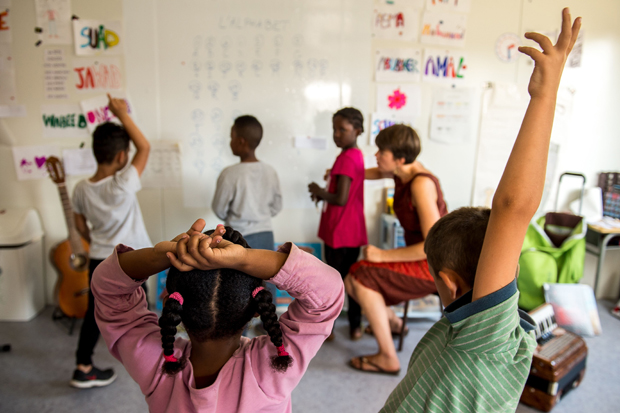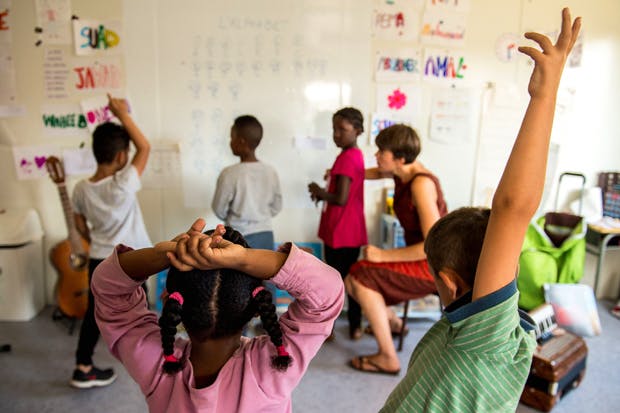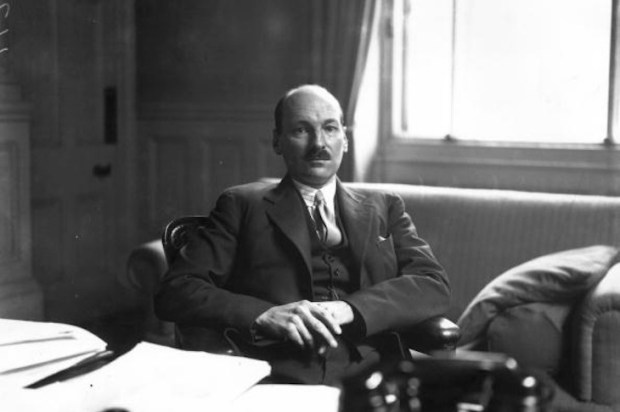E .D. Hirsch Jr., the American educationalist and author of Cultural Literacy, has a new book out that may throw some light on why France has such a problem integrating its Muslim population. Called Why Knowledge Matters: Rescuing Our Children From Failed Educational Theories, it’s a comprehensive attack on the progressive approach that has done so much harm to schools in the West. Hirsch identifies three ideas in particular: that education should be ‘developmentally appropriate’, with the emphasis on learning through discovery; that it should be ‘child-centred’, taking account of different ‘learning styles’; and that the overarching aim of education should be the cultivation of ‘critical thinking’ skills.
I’ve spent the best part of a decade fighting these ideas. One of the main reasons I’ve helped to set up four free schools is to demonstrate that a more traditional education, with all children learning a core body of subject-specific knowledge from an early age, is more effective. I don’t just mean that children taught in this way will leave school knowing more than their peers. I mean they’ll perform better in standardised tests and be more-likely to go to good universities. This is particularly true of those from low-income families.
Having read Why Knowledge Matters, I now realise that my efforts may be in vain. Not because progressive educationalists are impervious to reason (although they are) but because the case against their wrong–headed approach has been conclusively-proven in France. Chapter 7 of Hirsch’s book is devoted to documenting the catastrophic effect of a 1989 law brought in by Lionel Jospin, then the socialist education minister. The loi Jospin abolished the notoriously rigorous elementary school curriculum, which embodied the ideas set out by Condorcet in his 1790 pamphlet ‘A Common Education for Children’, and instead directed primary schools to develop their own, locally determined curriculums instead. They were to pay particular attention to students’ individual interests and, in a sop to multiculturalism, not prioritise traditional French values over those of other cultures and ethnicities. Out went the ‘Declaration of the Rights of Man’ and in came The Rainbow Fish. ‘In other words,’ writes Hirsch, ‘the French decided to completely Americanise their school system overnight.’
Thanks to the fondness of French bureaucrats for record-keeping, we know just how disastrous this was. Officials have conducted many studies comparing the performance of children taught the pre-1989 curriculum with those taught the progressive one since, and the results are unambiguous. They are particularly damning because nearly every factor is the same:-teacher quality has remained stable, school buildings haven’t changed, budgets didn’t go up or down, etc.
‘They reported an astonishingly steep decline in achievement in each demographic group,’ writes Hirsch, summarising the findings. ‘Each group was academically harmed by the new system, and the harm became ever greater as one went down the economic scale. The children of the unemployed declined most of all. Achievement decreased. Inequality increased dramatically.’
Could this misguided experiment in progressivism and multiculturalism have contributed to the decline in allegiance to the secular values of the republic among French youth, particularly Muslims? According to a 2014 ICM poll, 27 per cent of France’s 18- to 24-year-olds have a positive view of Isis. That’s much higher than in Britain or Germany, and while that’s partly attributable to France’s larger Muslim population — it’s home to approximately five million Muslims, with around half under 24 — it also reflects higher levels of disaffection with the values of liberal democracy. A Pew Research poll in 2007 revealed that 83 per cent of German Muslims and 70 per cent of British Muslims thought suicide bombing and violence against civilian targets was never justified, while among French Muslims that figure was only 64 per cent. So 36 per cent think it’s justified, at least occasionally. That’s 1.8 million people, and it’s a safe bet that most are under 24. That’s the legacy of loi Jospin.
This is not a tenuous connection. If French schoolchildren are no longer taught the democratic values that underpin their society, how can they be expected to respect them? It would be ironic if a law passed by a Socialist government in 1989 led directly to the election of Marine Le Pen in 2017.
The post France began breeding jihadis in 1989 appeared first on The Spectator.
Got something to add? Join the discussion and comment below.
Get 10 issues for just $10
Subscribe to The Spectator Australia today for the next 10 magazine issues, plus full online access, for just $10.
You might disagree with half of it, but you’ll enjoy reading all of it. Try your first month for free, then just $2 a week for the remainder of your first year.













Comments
Don't miss out
Join the conversation with other Spectator Australia readers. Subscribe to leave a comment.
SUBSCRIBEAlready a subscriber? Log in